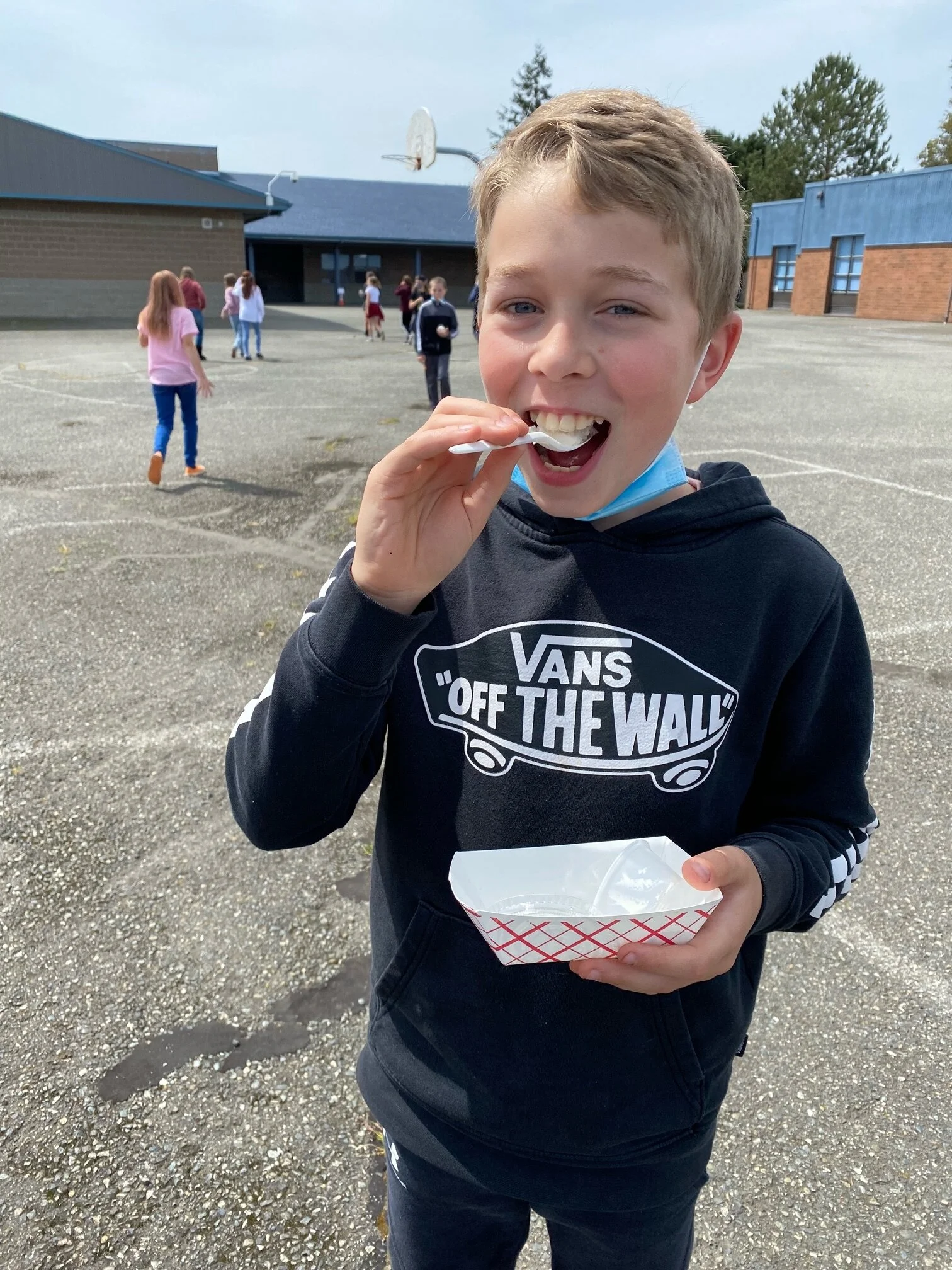Starting in the fall of 2021, Crystal Manly will be the new Director of Food and Nutrition and Culinary Arts teacher at Quilcene Schools. Crystal was a perfect fit of drive and capabilities. First, she worked with the former Director Veda Wilson and saw how the Culinary Arts program had empowered students while preparing them for a job straight out of high school. Then, when COVID hit and Veda retired in 2020, Crystal stepped up to manage feeding students at a distance. Admittedly it’s been a crazy year; she’s looking forward to working with students face-to-face in the fall.
The Culinary Arts program at Quilcene is more than a cooking class—it teaches institution-scale cooking skills through the creation of school lunches. Each month Crystal designs a menu following State dietary guidelines, but has some leeway to add to or adapt the menu depending on what School Garden Coordinator Erin Yaekel has ready for harvest. One week Erin may have loads of cilantro, and the next week too much kale. As the bounty of the season unfolds, students learn how to adapt recipes to include more fresh food.
(Above from 2019, pre-COVID. Each of the four Culinary Arts classes are a blend of 10 students from various grade levels. At the end of the program, graduating students have their food handler's permit and a first aid CPR certificate, along with a lot of confidence.
To help provide a predictable amount of lettuce from one week to the next, the school will be installing a ForkFarm hydroponics system capable of growing 3,400 heads of lettuce a year at $1 a pound. This system will provide multiple levels of learning: Agricultural students will be planting and maintaining the system; Erin's gardening classes will be learning from it; and the Culinary Arts program will harvest and prepare the final nutritious dishes. Definitely a win-win-win!
“How’s it growing?” May be the new catch phase at Quilcene.















